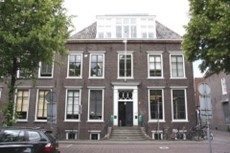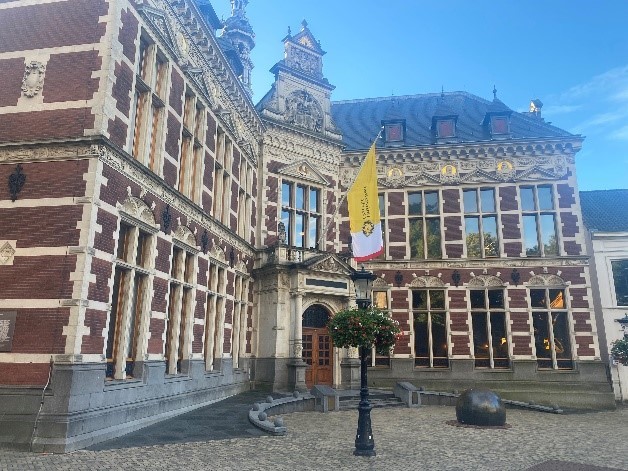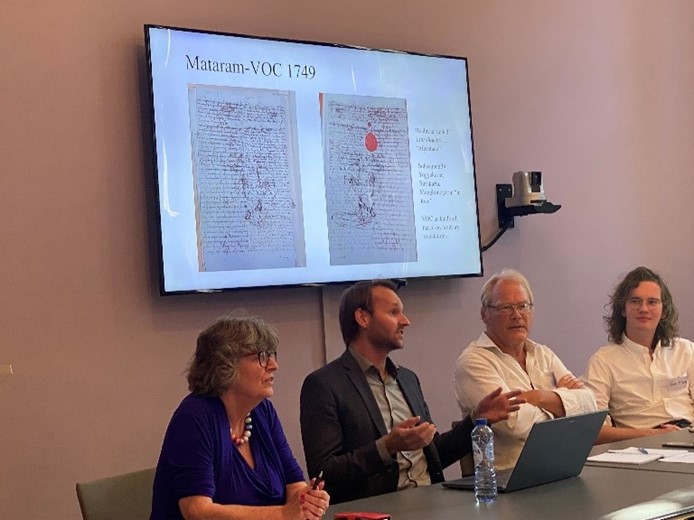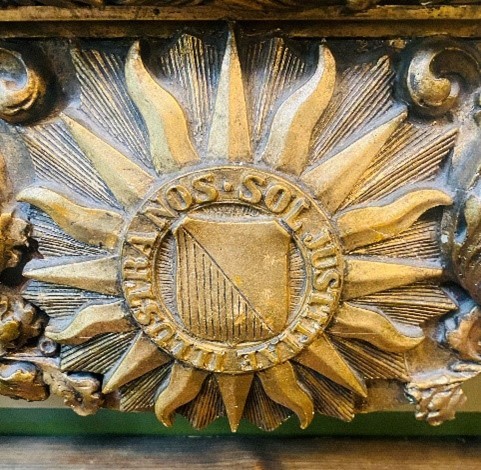11-13 September 2024
Utrecht University, The Netherlands
Following the successful international conference in 2016 at Leiden University, titled Visions of Empire in Dutch History, this critical follow-up conference aimed to foreground the often-marginalized voices of resistance in and against the Dutch empire. Drawing on recent trends in the intellectual history of anticolonialism, the conference showcased a wide range of recent scholarship on actors who resisted the Dutch empire and its legacies, spanning from the 1600s to the 2020s.
Wednesday, 11 September, Janskerkhof
The conference commenced in the afternoon with registration and a welcoming introduction by Leksana and Weststeijn. Eight years after the first conference, which resulted in the edited volume The Dutch Empire Between Ideas and Practice (Cambridge Imperial and Post-Colonial Studies, Palgrave, 2019), this year’s theme focused on the agitators who resisted colonial rule. Weststeijn, reading from the last paragraph of the book, highlighted how the “silencing or muting of the voices of the ‘colonized’” became the foundation for this conference.
The first keynote speaker, Kars (Massachusetts Institute of Technology), presented on the theme of ‘Rebellion and Politics in the Early Modern Black Atlantic’. Her insightful speech on the 1763 Berbice rebellion emphasized the complex notions and dynamics of rebellions, cautioning against romanticizing the freedom struggle as a simplistic black-and-white narrative.
Following Kars’s presentation, a discussion and short film screening of ‘The Surinamese Student Union’ took place, featuring Harrevelt and Lesuis, moderated and translated by Richard. Two beautifully crafted films were presented, focusing on the student union during the 1960s and 70s, and discussing the struggle for justice, cultural suppression, and the duality of having two home countries. Harrevelt notably commented on the difficulties of acknowledging one’s historical past, particularly regarding responsibility and profit from the colonial empire.
The setting for the conference, a building previously owned by Dutch plantation owners in Suriname, was fitting and underscored the relevance of the theme. The evening concluded with drinks and snacks at a local bar, fostering fruitful discussions and new friendships.

Janskerkhof 15A, Utrecht University [image from https://www.uu.nl/en/janskerkhof-15-a]
Thursday, 12 September, Academiegebouw
The day’s first panel, titled Rebellions, Revolts, and Their Legacies, featured four speakers presenting recent work on resistance in Chile, Taiwan, Suriname, and Curacao. Van Gaalen’s beautifully crafted imagery was particularly noteworthy, showcasing the diverse methodologies scholars employ in their research.
After a short break, the second panel on Slavery, Revolution, and Abolitionism commenced, focusing on West Africa, Java, and Haiti.
Lunch provided an opportunity to explore the beautiful university building and the adjacent St. Martin’s Cathedral and garden.

Utrecht University
The afternoon session featured the third panel on Everyday Resistance, with events from Suriname and Indonesia. A humorous comment about the fascination with tax history added a light-hearted moment to the discussions.
The second keynote speaker, Lin (National University of Singapore), passionately addressed the topic ‘Imperial Malcontents: Exceptional and Everyday Resistance’. He emphasized that all forms of resistance, whether large or small, were significant in undermining the colonial system, depending on individual capabilities, strength, and courage.
Dinner at a local Indonesian restaurant set the tone for the following day’s discussions and exchange of ideas.
Friday, 13 September, Academiegebouw
Despite the superstitions associated with the date, the day began smoothly with the fourth and fifth panels on Trans-Imperial Networks and Entanglements. These sessions explored anti-colonial leagues and networks in the Dutch Caribbean, Indonesia, and Malaysia.
After lunch, the sixth panel on Sounds and Images of Resistance delved into the auditory and visual aspects of the colonial context. Gillet (Utrecht) and Guadeloupe (Amsterdam) stood out with their presentation on Caribbean aesthetics, demonstrating how modern music and art can inform the study of Dutch colonialism. Gario (VU Amsterdam) received the conference’s largest applause for his artistic contribution, reflecting on the interplay of words and actions.
The final panel, Uncovering Voices of Resistance, examined resistance in Indonesia and Suriname. Hägerdal and Manse (Linnaeus University) presented their paper on Resistance by Treaty: Agency of Indigenous Elites in Colonial Indonesia through Practices of Treaty-Making. Their research highlighted how indigenous rulers used treaty-making as a form of resistance by not adhering to agreements, thus challenging colonial authority.

From left to right: Höfte, Manse, Hägerdal, Miske
The conference concluded with remarks from Koekkoek and Richard, summarizing the lessons learned. Koekkoek noted the lack of political friction among participants, suggesting that more diverse viewpoints could lead to new discoveries and insights. The conference underscored that all forms of resistance against the Dutch empire, whether long-term or short-term, contributed to the eventual dismantling of colonial structures.
Reflecting on the eight-year gap since the last conference, there is hope for another gathering in 2032, potentially accompanied by a new edited volume.
I would like to extend my sincere gratitude and appreciation to the organizers for their meticulously planned and executed conference, which provided everything one could wish for. Special thanks are due to the leaders of each session, who managed the busy schedule with utmost respect and friendliness.

Reflecting the motto of Utrecht University, Sol Iustitiae Illustra Nos (May the Sun of Righteousness Enlighten Us [see image above]), the sun valiantly fought against the clouds and shone upon us throughout the event.
Conference participants from the Historical treaties of Southeast Asia:
Hans Hägerdal is a professor of history at Linneaus University and a member of the Historical Treaties of Southeast Asia research team.
Maarten Manse is a postdoctoral lecturer at Vrije Universiteit Amsterdam and conducts postdoctoral research at Linnaeus University and a member of the Historical Treaties of Southeast Asia research team.
Isak Kronberg
Isak Kronberg is a doctoral student at Linnaeus University and part of the Historical Treaties of Southeast Asia research team.
Conference program
Wednesday 11 September (Location: Janskerkhof 15A, room 004)
15.45-16.00 Registration
16.00-16.15 Introduction (Grace Leksana and Arthur Weststeijn)
16.15-17.30 Keynote 1 Marjoleine Kars (MIT) – Rebellion and politics in the early modern Black Atlantic
17.30-18.30 Discussion and short film screening on The Surinamese Student Union with Christina Harrevelt and Emma Lesuis (moderated by Anne-Isabelle Richard)
Thursday 12 September (Location: Academiegebouw, Domplein 29, Belle van Zuylenzaal)
9.00-11.00 Panel 1: Rebellions, revolts and their legacies
Chair: Esther Captain (KITLV)
Lisa Kattenberg (Amsterdam) – The empire that never was: Resisting the Dutch in early modern Chile
Tzu-Yi Hsu (VU Amsterdam) – “We have no freedom and we must pay for everything we do”: The Chinese and the Natives united against Dutch rule in Taiwan, 1640s
Mark Meuwese (Winnipeg) – Indigenous resistance and survival in colonial and post-colonial Suriname, 1667-1976
Thomas van Gaalen (Nijmegen) – Shaping the surplus rebellion: Race, class and solidarity in the 1922 Curaçaoan dockers’ rebellion
11.15 -13.15 Panel 2: Slavery, revolution and abolitionism
Chair: Pepijn Brandon (VU Amsterdam)
Alyssa Renfurm (VU Amsterdam) – Forging belonging amid bondage: Exploring enslaved voices and community under Dutch colonial rule
Mart Rutjes (Amsterdam) – Resistance, revolution and war in West-Africa: The case of Elmina during the Age of Revolutions (1770s-1820s)
Bart Verheijen (Leiden) – The Java Benevolent Society and the abolition of slavery (1816-1830)
Eva Seuntjens (IISG/VU Amsterdam) – Paradoxical representations of the Haitian Revolution and their influence on the Dutch slavery debate, 1791-1833
13.15-14.15 Lunch break
14.15-16.15 Panel 3: Everyday resistance
Chair: Remco Raben (Utrecht)
Zawdie Sandvliet (VU Amsterdam) – “The plot is the soul of the plantation”: Racial capitalism, the plantation and the plot in 18th-century Suriname
Philip Post (Utrecht) – Colonial citizenship and resistance in Ambon and Batavia, 1817-1848
Arnout van der Meer (Colby College) – Sartorial revolutions: Clothes and everyday resistance in colonial Indonesia
Abdul Wahid (Gadjah Mada) – Varieties of anti-tax resistances in late colonial Indonesia
16.30-17.45 Keynote 2 Hongxuan Lin (NUS) – Imperial malcontents: Exceptional and everyday resistance
Friday 13 September (Location: Academiegebouw, Domplein 29, Belle van Zuylenzaal)
9.30-10.30 Panel 4: Transimperial networks and entanglements I
Chair: Rachel Gillet (Utrecht)
Sander van der Horst (Leiden) – Global anticolonial reporting from the Netherlands: The Dutch League against Imperialism and its journal Recht en Vrijheid, 1927-1935
Dominique Ankoné (VU Amsterdam) – Resisting the Dutch empire abroad: Transimperial networks and the People’s League against Imperialism, 1945-1950
10.45-12.15 Panel 5: Transimperial networks and entanglements II
Chair: Elise van Nederveen Meerkerk (Utrecht)
Debby Esmée de Vlugt (Utrecht) – Black internationalism in the twentieth-century Dutch Caribbean
Kirsten Kamphuis (Münster) – Leftist women and (post)colonial solidarities between the Netherlands and Indonesia, ca. 1930-1960
Roel Frakking (Utrecht) – Greater Malaysia, Greater Indonesia? Trans-imperial networks and combined Indonesian-Malaysian futures, ca. 1900-1966
12.15-13.15 Lunch break
13.15-15.30 Panel 6: Sounds and images of resistance
Chair: Susie Protschky (VU Amsterdam)
Renée Vulto (Utrecht) – Audible Empire? Colonial sound politics in 19th-century Suriname
Jennifer Foray (Indiana University) – Displaying Decolonization in Real Time: Cas Oorthuys’ Een staat in wording and the Djaya brothers at the Stedelijk Museum
Jelena Beočanin (Rotterdam) – Emotional practices of performing resistance and activism among Rotterdam’s hip-hop artists
Rachel Gillet (Utrecht) and Francio Guadeloupe (Amsterdam), with an artistic contribution by Quinsy Gario (VU Amsterdam) – Caribbean aesthetic-politics in the neerlandophone world
15.45-17.15 Panel 7: Uncovering voices of resistance
Chair: Rosemarijn Höfte (Amsterdam)
Sam Miske (VU Amsterdam) – Repression, resistance, and resilience along gendered lines in the Banda Islands, Indonesia, 1599-1630
Hilde Neus (AdeKUS Paramaribo) – Seventy women of color against the civil guards, Suriname 1778
Hans Hägerdal and Maarten Manse (Linnaeus University) – Resistance by treaty: Agency of indigenous elites in colonial Indonesia through practices of treaty-making
17.15-17.30 Concluding remarks (René Koekkoek and Anne-Isabelle Richard)



